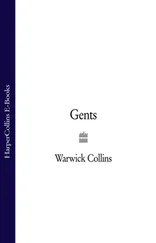A man in hew all Hews in his controlling ,
The mysterious word ‘Hews’, with a capital letter, as though it were a name, would be opaque to the merely casual reader. But since my patron was Henry Wriothesley, Earl of Southampton, whose initials were HWES, an anagram of Hews, it would give a clue to the identity of the fair young man. It happened too that certain of those tradesmen, builders and merchants who had cause to address my lord, or wrote him bills, often altered his name to ‘Henry, Earl Wriothesley of Southampton’. Thus ‘Hews’ would act as a vernacular reference to my patron.
I chose the moment carefully to show the poem to my lord. We had been riding through the forest that early summer morning. He dismounted from his horse in order to walk to the edge of a nearby decline, so that he could survey the surrounding country. As I walked alongside him, I drew the paper forth from my clothes. Taking it from me, he read it with studied amusement. I watched him raise his eyebrows at the last few lines, read them again, and then laugh the louder.
‘Most excellent,’ he said. ‘I am thy spiritual love, but Nature pricked me out for women’s pleasure.’ He smiled again. ‘I should be desirous to see more.’
I asked him whether he had noted the hidden reference to his name in ‘Hews’.
My patron said, ‘If these are dangerous times, as you counsel me, then it is right that living persons should not be mentioned. And since these are private poems, for our own enjoyment, Master Shakespeare, I believe all your references to me as your patron should be hidden to an outside view. If you will accept those conditions, pray continue as you will.’
He returned the paper to me. ‘Will you make a copy of this, in your own hand, so that I may keep it?’
It became our custom. When I had finished a poem, I would copy it; keeping the overwritten and amended original for myself, giving the fair version to him. As for the content, perhaps I could do better in due course. But the tone – part infatuation, part irony, directed at a mysterious and unidentified beautiful youth – seemed well set for our enterprise. In due course I would arrange the poems in a different order, but meanwhile they would steadily accrue.
T HAT SUMMER, GRANTED MY LORD’S PERMISSION, I began to sing his praises in those effusive and extravagant terms so dearly beloved of my countrymen. For there was another circumstance which propelled me towards such orisons to beauty, and my lord towards receiving them with a good grace. It happened that in our kingdom we were ruled by a Queen, a veritable lion-hearted Empress, and in our pleading for her mercy and her favour we all of us sounded like troubadour poets singing of our love. It happened too that the very form or construction of my sonnets – soliciting the favours of a fair subject – rhymed with the prevailing fashion among courtiers. And so I proceeded from one to the next, gaining greater confidence as each one was well received by my patron.
When in disgrace with fortune and men’s eyes ,
I all alone beweep my outcast state ,
And trouble deaf heaven with my bootless cries ,
And look upon myself, and curse my fate ,
Wishing me like to one more rich in hope ,
Featur’d like him, like him with friends possess’d ,
Desiring this man’s art, and that man’s scope ,
With what I most enjoy contented least;
Yet in these thoughts myself almost despising ,
Haply I think on thee, – and then my state ,
Like to the lark at break of day arising
From sullen earth, sings hymns at heaven’s gate;
For thy sweet love remember’d such wealth brings ,
That then I scorn to change my state with kings.
I continued to sing my calculated songs throughout that summer, piling verse on verse, page on page, making each time a fresh copy for my lord. With the form established between us, I began to exceed myself in gallantry, making the object of my praises the subject of love itself. Though my poem was addressed to a handsome youth, I strove as best I could to reflect some universal desire.
Shall I compare thee to a summer’s day?
Thou art more lovely and more temperate:
Rough winds do shake the darling buds of May ,
And summer’s lease hath all too short a date:
Sometime too the eye of heaven shines ,
And often is his gold complexion dimm’d;
And every fair from fair sometimes declines ,
By chance, or nature’s changing course, untrimm’d;
But thy eternal summer shall not fade ,
Nor lose possession of that fair thou ow’st;
Nor shall Death brag thou wander’st in his shade ,
When in eternal lines to time thou grow’st:
So long as men can breathe, or eyes can see ,
So long lives this, and this gives life to thee.
I burnt my nightly hours as he inferred, confined to my small room, bent over my formal rhythms, counting the beats on my fingers, feeling for that thread of sense which would hold together the discreet observations and soaring praises they would contain. Sometimes several days, or even a week, would pass without a single line that I deemed worth showing to him. At other times, in the course of a night’s labour, I would find several pages of some worth had piled one upon the other. So, often laboriously and occasionally swiftly, I began to accumulate my efforts.
Who will believe my verse in time to come ,
If it were fill’d with your most high deserts?
Though yet, heaven knows, it is but as a tomb
Which hides your life, and shows not half your parts.
If I could write the beauty of your eyes ,
And in fresh numbers number all your graces ,
The age to come would say, ‘This poet lies;
Such heavenly touches ne’er touch’d earthly faces. ’
So should my papers, yellow’d with their age ,
Be scorn’d, like old men of less truth than tongue ,
And your true rights be term’d a poet’s rage
And stretched metre of an antique song:
But were some child of yours alive that time ,
You should live twice, – in it and in my rhyme.
The introduction of a child of his own making who would perpetuate that beauty was accidental and felicitous, though perhaps with my poetic senses now attuned to his particular circumstances, I presaged some future development.
T HERE WERE TIMES when my lord seemed to regard me with a certain wry amusement for my pains. In conversation one day, he deliberately switched the subject from the sonnet he had been reading towards another subject perhaps closer to his heart. At the time he was staring at the floor, as though gathering his thoughts. Now he turned to peer once more at me with his green eyes, flecked with gold. ‘My mother has spoken to you again?’
‘She has.’
‘And on the usual subject?’
‘The usual,’ I said.
‘And you take her side, as always.’
‘Her side is your side,’ I replied, and added, ‘She speaks for you.’
He turned away. ‘Damn me, if she does.’
I said, ‘There are matters which await you. That is all she says.’
‘Yes, yes, matters!’ This was fierce and fast. He seemed compelled to continue, for the rest of what he wished to say now streamed forth. ‘It is time, perhaps, that you knew something further of me, of my closer circumstances…’
Читать дальше












